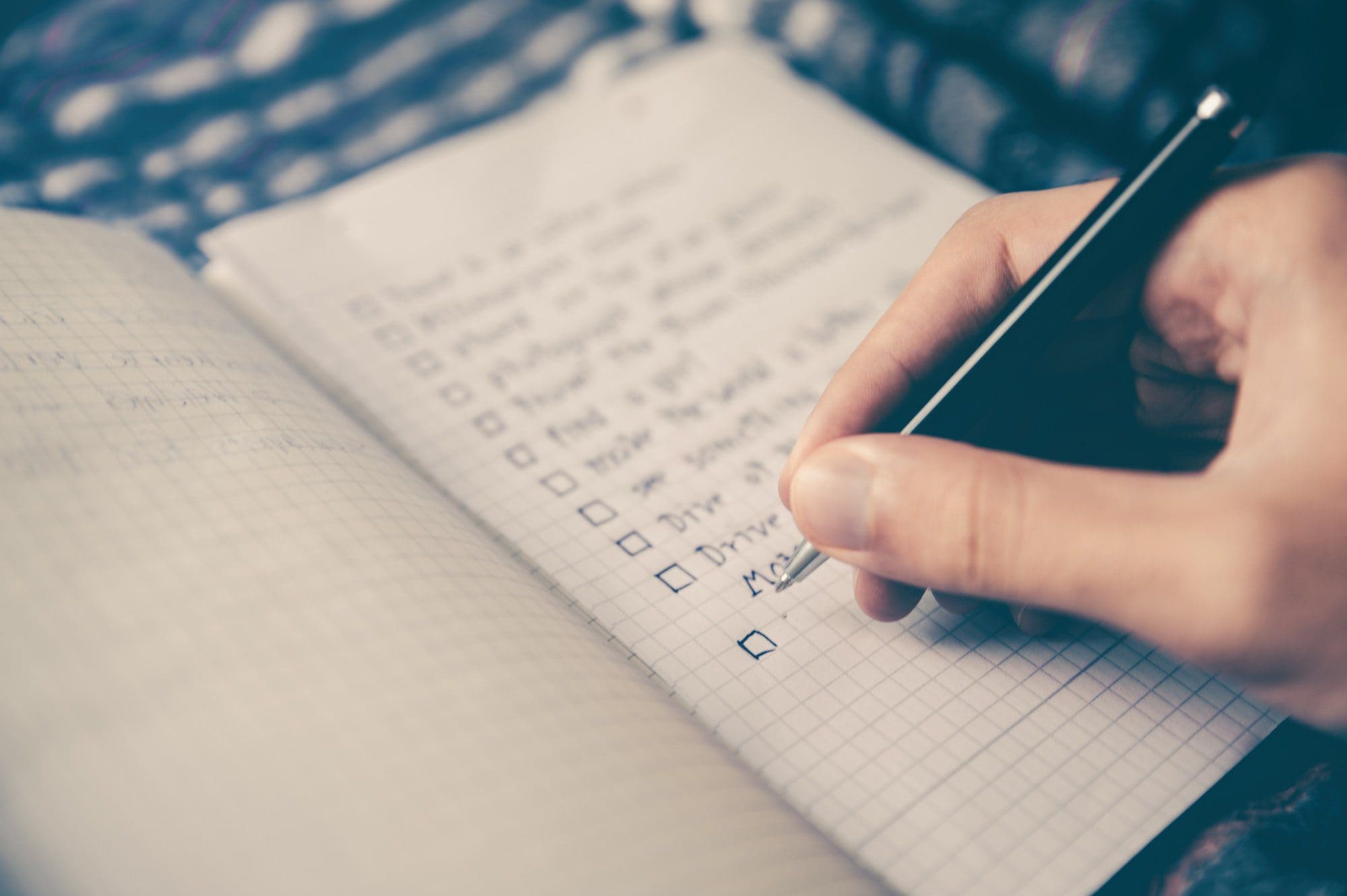Buying a house in Ireland can seem like a complex operation, with a mountain of paperwork. Breaking the process down will make securing your dream home, clear, simple, and achievable. Our checklist for buying a house in Ireland is here to help you hit the ground running checking off each milestone along the way.
1. Set a budget
It all starts with your budget; how much you can afford to save each month and how much you can put towards a deposit. Start by assessing your spending habits and outgoings to see where you can make some extra savings.
2. Calculate your mortgage repayments
An important step in the process of budgeting is calculating how much you can afford to pay on a mortgage each month. Don’t forget to consider the cost of any home renovations, moving costs and the total cost of running your new home each month. It all adds up so make sure you aren’t overstretching yourself with monthly mortgage repayments.
3. Get your finances in order
Loan providers will be assessing your finances to see if you can afford your mortgage repayments. Reviewing your finances before your applications can help smooth out any red flags you might have in your spending habits. Have you any missing or late credit card payments? Get this in order before applying for your mortgage.
4. Get your mortgage documents in order
You will need to have all your mortgage application documents in order to avoid any extra hiccups along the way. Make sure you keep copies of everything.
5. Apply for your mortgage
When your mortgage documentation is in order, start your application. You can apply to more than one mortgage provider, that way you have the choice of comparing rates and offers. You can choose between direct applications to loan providers or using a mortgage broker.
6. Decide where you want to buy
This step has less to do with the legal requirements and more to do with knowing what you want. Choosing the right home can be overwhelming but knowing how many rooms you would like; your ideal location and deal breakers will help you a lot in the process of finding your home. Especially when it’s time to start viewings.
7. Hire a solicitor
A solicitor is there to help you with the legal purchase of a house, having a solicitor organised before you start viewing properties will help guide you through the process of making an offer and exchanging contracts.
8. Get your mortgage protection in order
You need to have mortgage protection in place in advance of making any offers, loan providers can refuse your application without this. Ensuring that your mortgage is paid off if anything happens to you with insurance is a part of buying a home.
9. Start viewing properties
Knowing your ideal neighbourhoods and deal breakers in advance will have you well prepared for viewings. Stay focused on your needs keeping an extra eye out for damage or dampness in properties. You must know what you’re getting yourself in to.
10. Making an offer
When it comes to making an offer, do some research on the common prices of property in the area, and consider everything from your viewings. Being ready to buy can help your offer look more favourable to estate agents and the seller. It’s not always the highest bid that is accepted.
11. Have a structural survey carried out
Having a structural survey carried out by a professional, gives you valuable insight into the condition of your new potential home. A professional might also spot issues you miss in viewings.
12. After the sale is agreed
Once’s your offer is accepted you are required to pay the estate agents a booking deposit, who will send the paperwork to your solicitor. Make sure the estate agents take the property off the market after this.
13. Get your home insurance and mortgage protection in order
At this time, you should also organise your home insurance as the property needs to be covered before the sale goes through.
14. Have the property evaluated
Before you get the funds for your deposit you need to have a professional valuation of the property carried out after the sale is agreed, this is what your formal loan offer is based on.
15. Accept your formal letter of offer
You will receive your formal letter of offer, covering all the details of your mortgage, your solicitor will also receive a copy. Once you accept the letter of offer from your mortgage provider you are ready to sign contracts.
16. Contracts are drawn up
The estate agents will send all contracts for the sale of the property with copies of the title deed to your solicitor. Contracts are legally binding, so you need to be sure of your choice before signing.
17. Exchanging contracts
Your solicitor is there to help, once you have signed the contract of sale with your solicitor, they will arrange to exchange them with the seller’s solicitor. Once contracts are signed, you have legally agreed to buy the property.
18. Pay your deposit
Usually, your solicitor will receive your loan funds by bank transfer. Once you and your solicitor have reviewed the contract in detail you will then sign it and pay the full deposit. For first-time buyers, it is usually 10 percent of the total cost of the property.
19. Create a new build snag list
If you have bought a new build this is when you will have the chance to inspect the property and create a snag list, this is anything that is not finished in the space or issues you might see. Once these issues are amended you can continue with closing the sale.
20. Stamping and registration
Normally your solicitor will organise the payment of stamp duty for you, you will be required to reimburse them for this when the sale is closing. Other fees you will have to pay include registering for your deeds.
21. Review your property tax
When buying a home in Ireland you are required to pay local property tax. Accounting for property tax in your budget will mean that this payment won’t be a surprise to you. This is usually based on your own valuation of the property. The revenues valuation guide can help you estimate this cost.
22. Collecting your keys
Congratulations on making it through this lengthy process. It’s all worth it when you get the keys to your new home. It’s time to move in and make it your own.
Secure your new home with AA home insurance, you can get a quote online today and enjoy a 40% No Claims Discount & €60 Off Online*
**Min premium of €218 & 5 years claims free. €60 applied to new business online quotes. Acceptance criteria, T&C’s apply.










